-
 Bitcoin
Bitcoin $77,741.2042
-2.10% -
 Ethereum
Ethereum $1,483.7084
-5.24% -
 Tether USDt
Tether USDt $0.9996
0.01% -
 XRP
XRP $1.8283
-1.85% -
 BNB
BNB $556.0486
-0.39% -
 USDC
USDC $1.0002
0.02% -
 Solana
Solana $107.2186
-1.21% -
 Dogecoin
Dogecoin $0.1472
-1.84% -
 TRON
TRON $0.2292
-2.15% -
 Cardano
Cardano $0.5762
-1.14% -
 UNUS SED LEO
UNUS SED LEO $9.1349
1.86% -
 Toncoin
Toncoin $3.0824
-0.54% -
 Chainlink
Chainlink $11.4627
-1.15% -
 Avalanche
Avalanche $16.8086
-1.40% -
 Stellar
Stellar $0.2234
-1.98% -
 Hedera
Hedera $0.1549
-2.35% -
 Shiba Inu
Shiba Inu $0.0...01103
-2.35% -
 Sui
Sui $1.9882
-1.59% -
 MANTRA
MANTRA $6.2625
-0.24% -
 Bitcoin Cash
Bitcoin Cash $275.4681
-0.58% -
 Polkadot
Polkadot $3.4797
-3.23% -
 Dai
Dai $1.0003
0.02% -
 Litecoin
Litecoin $70.7217
-0.76% -
 Ethena USDe
Ethena USDe $0.9986
-0.03% -
 Bitget Token
Bitget Token $4.0982
-2.40% -
 Hyperliquid
Hyperliquid $12.3725
3.36% -
 Pi
Pi $0.5663
-2.21% -
 Monero
Monero $195.2899
-5.54% -
 OKB
OKB $51.4452
-1.06% -
 Uniswap
Uniswap $4.8766
-5.24%
How to buy ETH at a low price through arbitrage trading?
Arbitrage trading in crypto involves buying ETH on one exchange at a lower price and selling it on another at a higher price, profiting from the difference minus fees.
Mar 27, 2025 at 01:07 pm
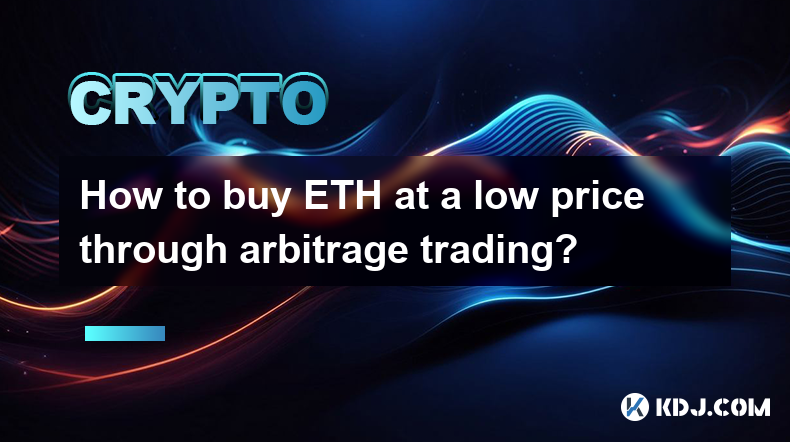
Understanding Arbitrage Trading in Crypto
Arbitrage trading exploits price discrepancies of the same asset across different exchanges. In the cryptocurrency world, this means buying ETH on one exchange where it's cheaper and simultaneously selling it on another where it's more expensive. The difference is your profit, minus transaction fees. This requires speed and efficiency, as price differences are often fleeting. The key is identifying these discrepancies quickly and executing trades before the market corrects itself. It's important to note that arbitrage opportunities are usually small and require significant trading volume to generate substantial profits.
Finding Arbitrage Opportunities for ETH
Locating arbitrage opportunities requires constant monitoring of multiple cryptocurrency exchanges. You'll need access to real-time pricing data from various platforms. Many dedicated arbitrage trading platforms and software solutions exist to help automate this process and alert you to potential opportunities. Manually checking prices across numerous exchanges is incredibly time-consuming and impractical for consistent arbitrage trading. Consider using specialized software or APIs to streamline this process.
Step-by-Step Guide to Arbitrage Trading ETH (Simplified Example)
This example simplifies the process; real-world arbitrage is far more complex and requires sophisticated tools.
- Step 1: Identify the Discrepancy: Find two exchanges where ETH prices differ significantly. Let's say Exchange A prices ETH at $1,800, and Exchange B prices it at $1,810.
- Step 2: Buy Low, Sell High: Buy ETH on Exchange A at $1,800.
- Step 3: Transfer ETH: Transfer your purchased ETH from Exchange A to Exchange B. This step involves network fees (gas fees on Ethereum).
- Step 4: Sell High: Sell your ETH on Exchange B at $1,810.
- Step 5: Calculate Profit: Subtract your initial investment, transaction fees on both exchanges, and network transfer fees from your sale proceeds to determine your profit.
Risks and Challenges of ETH Arbitrage Trading
Arbitrage trading, while potentially profitable, carries inherent risks.
- Transaction Fees: Network fees (gas fees on Ethereum) can significantly eat into profits, especially during periods of high network congestion. Carefully consider these fees when evaluating potential arbitrage opportunities.
- Price Volatility: Cryptocurrency prices are highly volatile. A sudden price drop on one exchange before you can complete your trade could lead to losses.
- Liquidity: Insufficient liquidity on one or both exchanges can prevent you from executing trades at the desired prices. Always ensure sufficient liquidity before initiating a trade.
- Exchange Delays: Delays in transferring funds between exchanges can negate any price advantage. Choose exchanges with fast and reliable transaction processing.
- Security Risks: Using multiple exchanges increases your exposure to security risks. Prioritize secure exchange selection and utilize strong security practices.
Advanced Techniques and Considerations
Sophisticated arbitrage traders often employ advanced techniques.
- Algorithmic Trading: Automating the process using algorithms and bots to identify and execute trades faster than humans. This requires programming skills and robust trading infrastructure.
- High-Frequency Trading (HFT): Employing specialized hardware and software to execute trades at extremely high speeds to capitalize on minuscule price differences. This requires substantial capital investment.
- Triangular Arbitrage: Exploiting price discrepancies among three or more exchanges. This is more complex but can yield higher profits.
Choosing the Right Exchanges for ETH Arbitrage
Selecting reliable and reputable exchanges is crucial. Factors to consider include:
- Liquidity: Choose exchanges with high trading volume and deep liquidity to ensure smooth execution of large trades.
- Fees: Compare transaction fees and network fees across different exchanges.
- Security: Prioritize exchanges with strong security measures to protect your funds.
- Reputation: Select exchanges with a good track record and positive user reviews.
Tools and Resources for ETH Arbitrage Trading
Several tools can assist in identifying and executing arbitrage opportunities:
- Arbitrage Software: Numerous software platforms provide real-time price comparisons across multiple exchanges and automate the trading process.
- APIs: Many exchanges offer APIs that allow you to access real-time price data and execute trades programmatically.
- Spreadsheets: While less sophisticated, spreadsheets can be used to manually track prices across different exchanges.
Frequently Asked Questions
Q: Is ETH arbitrage trading profitable?
A: While potentially profitable, it's not guaranteed. Profits are usually small and require significant trading volume and efficient execution to be substantial. Transaction fees and the risk of price fluctuations can significantly impact profitability.
Q: How much capital do I need for ETH arbitrage trading?
A: The required capital depends on your trading strategy and risk tolerance. Larger capital allows for larger trades and potentially higher profits, but also increases risk.
Q: What are the risks of ETH arbitrage trading?
A: The main risks include transaction fees, price volatility, liquidity issues, exchange delays, and security breaches. Understanding and mitigating these risks is essential.
Q: Is arbitrage trading legal?
A: Arbitrage trading itself is generally legal, but it's crucial to comply with all applicable laws and regulations in your jurisdiction. This includes tax laws and any regulations related to cryptocurrency trading.
Q: Do I need programming skills for ETH arbitrage trading?
A: While not strictly necessary for basic arbitrage, advanced techniques, such as algorithmic trading, require programming skills. Many software solutions exist to automate the process without requiring coding expertise.
Q: How can I minimize risks in ETH arbitrage trading?
A: Risk mitigation involves choosing reputable exchanges, using reliable software, carefully monitoring price movements, diversifying your portfolio, and understanding the transaction fees involved. Starting with small trades and gradually increasing your investment can also help manage risk.
Disclaimer:info@kdj.com
The information provided is not trading advice. kdj.com does not assume any responsibility for any investments made based on the information provided in this article. Cryptocurrencies are highly volatile and it is highly recommended that you invest with caution after thorough research!
If you believe that the content used on this website infringes your copyright, please contact us immediately (info@kdj.com) and we will delete it promptly.
- BTFD Coin: The Next Big Meme Coin With Staking Rewards and a Play-to-Earn (P2E) Game
- 2025-04-09 16:00:13
- These 4 Altcoins (ETH, BNB, DEBO, SOL) Can Provide Insane Performance
- 2025-04-09 16:00:13
- Top 5 Performers from HTX’s Crypto Gem Hunt #2
- 2025-04-09 15:55:12
- TZ APAC Launches the Second Cohort of Its Fortify Labs Program, Targeting Startups Building on Tezos or Etherlink
- 2025-04-09 15:55:12
- Introducing A(i)gentFi, the One-Stop Shop for AI Agent Creation on ZKsync
- 2025-04-09 15:50:12
- Rain Labs Raises $15M From Galaxy Ventures, Goldcrest, Thayer, and Hard Yaka to Expand Its Global Reach
- 2025-04-09 15:50:12
Related knowledge
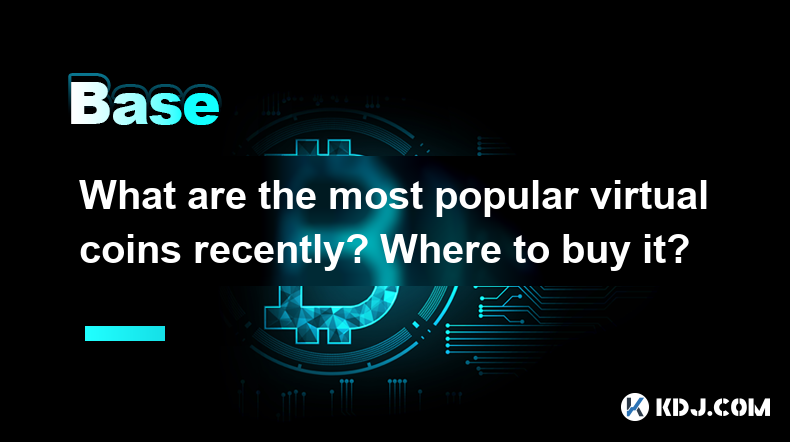
What are the most popular virtual coins recently? Where to buy it?
Apr 07,2025 at 01:28pm
Buying virtual currencies is usually possible through some of the following large cryptocurrency exchanges: Binance: As one of the world's top cryptocurrency trading platforms, Binance has attracted more than 100 million active users, with daily trading volumes of US$80-90 billion, providing excellent trading depth and liquidity. The platform suppor...
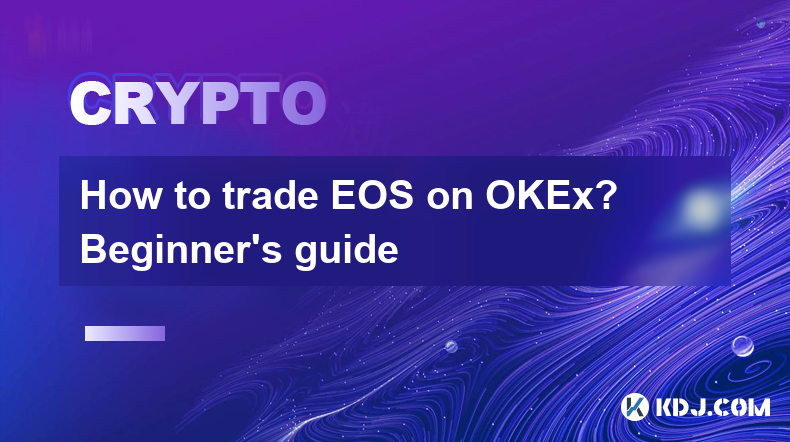
How to trade EOS on OKEx? Beginner's guide
Apr 04,2025 at 09:36am
Trading EOS on OKEx can be an exciting venture for beginners eager to dive into the world of cryptocurrency. To get started, you'll need to understand the basics of trading, familiarize yourself with OKEx's platform, and learn how to manage your investments effectively. This beginner's guide will walk you through the steps to trade EOS on OKEx, from set...
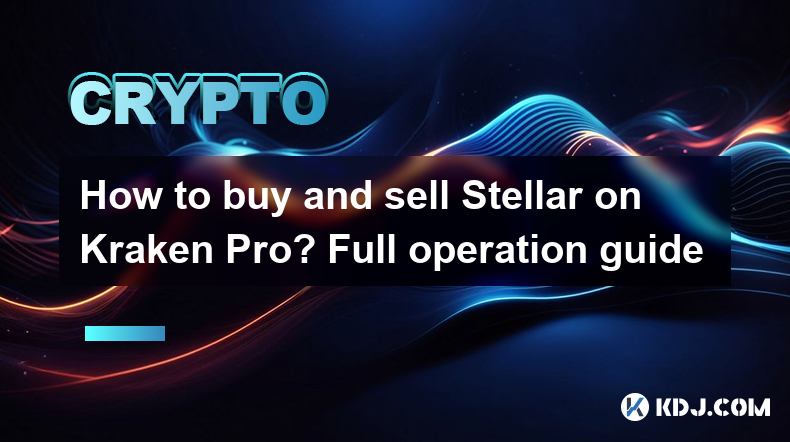
How to buy and sell Stellar on Kraken Pro? Full operation guide
Apr 05,2025 at 09:00pm
Buying and selling Stellar (XLM) on Kraken Pro is a straightforward process, but it requires a clear understanding of the platform and its features. Kraken Pro, formerly known as Kraken Futures, is a professional trading platform designed for experienced traders who are looking for advanced trading tools and features. In this guide, we will walk you thr...
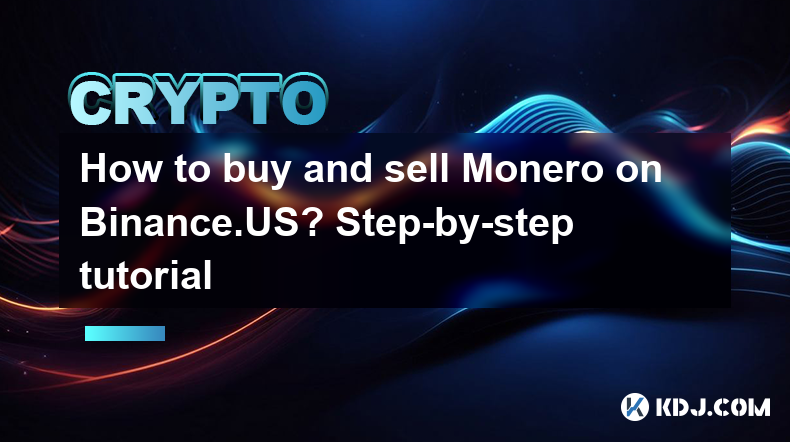
How to buy and sell Monero on Binance.US? Step-by-step tutorial
Apr 04,2025 at 03:49am
Binance.US is a popular cryptocurrency exchange that allows users to trade various digital assets, including Monero (XMR). Monero is a privacy-focused cryptocurrency that uses advanced cryptography to ensure transaction anonymity. If you're interested in buying or selling Monero on Binance.US, this step-by-step tutorial will guide you through the proces...
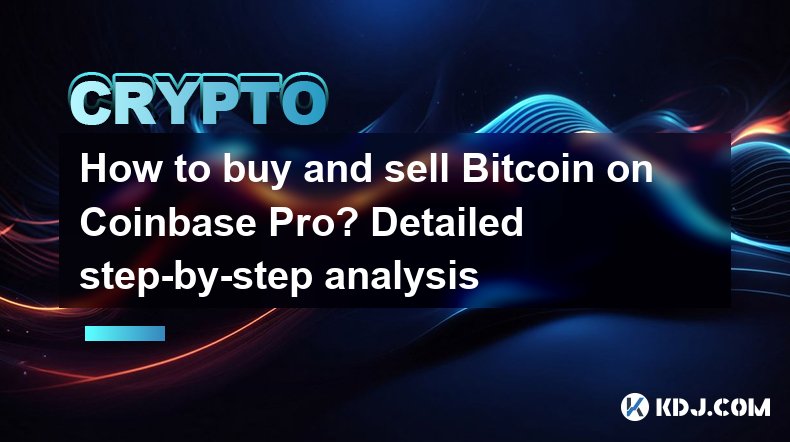
How to buy and sell Bitcoin on Coinbase Pro? Detailed step-by-step analysis
Apr 05,2025 at 10:56am
Coinbase Pro, previously known as GDAX, is a professional trading platform that offers advanced trading features for buying and selling cryptocurrencies like Bitcoin. To effectively use Coinbase Pro, it's essential to understand the platform's interface, trading options, and the detailed steps required for transactions. This article will provide a compr...
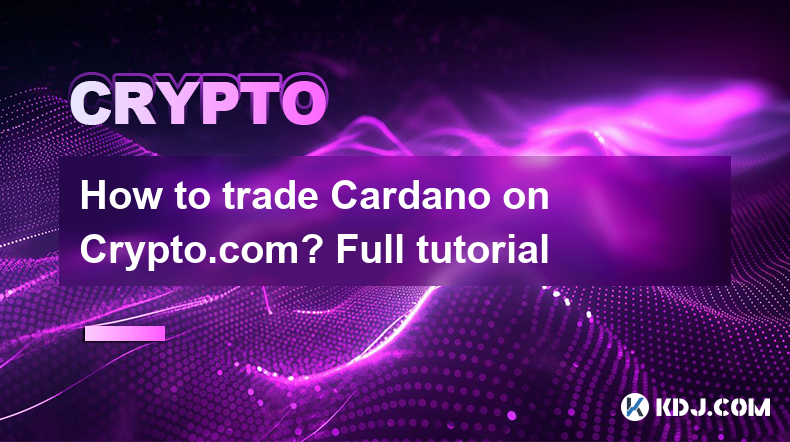
How to trade Cardano on Crypto.com? Full tutorial
Apr 03,2025 at 04:49am
Trading Cardano (ADA) on Crypto.com is a straightforward process that can be accomplished by following a few key steps. Cardano, one of the leading cryptocurrencies, is popular among investors for its potential and technological advancements. Crypto.com, a well-known platform in the crypto world, offers a user-friendly interface to buy, sell, and trade ...

What are the most popular virtual coins recently? Where to buy it?
Apr 07,2025 at 01:28pm
Buying virtual currencies is usually possible through some of the following large cryptocurrency exchanges: Binance: As one of the world's top cryptocurrency trading platforms, Binance has attracted more than 100 million active users, with daily trading volumes of US$80-90 billion, providing excellent trading depth and liquidity. The platform suppor...

How to trade EOS on OKEx? Beginner's guide
Apr 04,2025 at 09:36am
Trading EOS on OKEx can be an exciting venture for beginners eager to dive into the world of cryptocurrency. To get started, you'll need to understand the basics of trading, familiarize yourself with OKEx's platform, and learn how to manage your investments effectively. This beginner's guide will walk you through the steps to trade EOS on OKEx, from set...

How to buy and sell Stellar on Kraken Pro? Full operation guide
Apr 05,2025 at 09:00pm
Buying and selling Stellar (XLM) on Kraken Pro is a straightforward process, but it requires a clear understanding of the platform and its features. Kraken Pro, formerly known as Kraken Futures, is a professional trading platform designed for experienced traders who are looking for advanced trading tools and features. In this guide, we will walk you thr...

How to buy and sell Monero on Binance.US? Step-by-step tutorial
Apr 04,2025 at 03:49am
Binance.US is a popular cryptocurrency exchange that allows users to trade various digital assets, including Monero (XMR). Monero is a privacy-focused cryptocurrency that uses advanced cryptography to ensure transaction anonymity. If you're interested in buying or selling Monero on Binance.US, this step-by-step tutorial will guide you through the proces...

How to buy and sell Bitcoin on Coinbase Pro? Detailed step-by-step analysis
Apr 05,2025 at 10:56am
Coinbase Pro, previously known as GDAX, is a professional trading platform that offers advanced trading features for buying and selling cryptocurrencies like Bitcoin. To effectively use Coinbase Pro, it's essential to understand the platform's interface, trading options, and the detailed steps required for transactions. This article will provide a compr...

How to trade Cardano on Crypto.com? Full tutorial
Apr 03,2025 at 04:49am
Trading Cardano (ADA) on Crypto.com is a straightforward process that can be accomplished by following a few key steps. Cardano, one of the leading cryptocurrencies, is popular among investors for its potential and technological advancements. Crypto.com, a well-known platform in the crypto world, offers a user-friendly interface to buy, sell, and trade ...
See all articles























































































